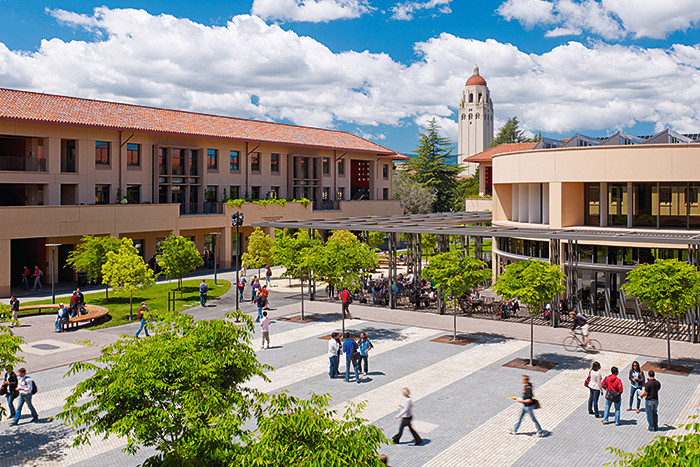FT Executive Education Rankings 2018

Simply sign up to the Business education myFT Digest -- delivered directly to your inbox.
Switzerland’s IMD and Iese Business School of Spain retain their grip on the top spots in the FT’s twin rankings of executive education programmes in 2018. The Lausanne school is number one for open-enrolment programmes — available to all working managers — while its Barcelona rival heads the table of customised courses, tailor-made for corporate clients.
The Swiss school has established itself as a benchmark for open-enrolment courses, topping the ranking for the seventh year in a row — but quality comes at a price. “It was ridiculously expensive,” said one respondent to the FT alumni survey.
Yet despite the cost, the number of campus open-programme participants in 2017 increased by nearly 10 per cent to 2,700 from 2016. Guy Schroecker, executive director of marketing and communications said that prices for the “highly popular” courses were “aligned and competitive” with those of other international business schools.
“They know what they are doing at IMD,” added another former student. “I found the overall mix between training, teachers and participants highly relevant and extremely well thought-out and prepared.”
FT Executive Education rankings 2018

Find out which schools are in our ranking of 90 customised programmes and 80 open-enrolment courses.
Discover how the rankings are compiled.
The school is the top three in eight out of 10 criteria based on participants’ ratings.
Iese Business School is in its fourth consecutive year at the top of the ranking for customised programmes. The school is known for its strongly international outlook. Not only it is number one for international clients and faculty diversity but it is also second for its overseas programmes and partner schools. It is in the top five of all but one of the other nine criteria informed by its corporate clients.
“Working with Iese has been a great experience,” reported one client. “Everything was possible and they understood our context and needs so well.”
Both IMD and Iese drop a place to third in the other of the twin rankings, which are in their 20th edition. The tables feature a record 90 customised programmes and 80 open-enrolment programmes worldwide. They are based principally on measures of participants’ and clients’ satisfaction (see methodology), as well as the schools’ growth in revenues, their international reach and faculty diversity.
Saïd Business School at the University of Oxford achieves its best performance in the open ranking — up to second — while Duke Corporate Education is second in the customised course table.
Stanford Graduate School of Business is back in the top 10 of both rankings for first time in five years. Harvard Business School and Insead are the other schools to feature in both top 10s.
Top for customised programmes: Iese

Iese Business School tops this ranking for the fourth consecutive year. The Barcelona school is in the top five in 13 out of 15 assessment criteria. Notably it is number one for new skills, international clients and faculty diversity. “Iese’s approach is extremely collaborative and they work tirelessly to ensure that our learning outcomes are successful,” said one corporate client surveyed by the FT.
Highest entrant: Renmin

Renmin University of China School of Business is this year’s highest new entrant, in 13th place. The Beijing school is making a comeback after appearing in 2014, ranked 49th. It is rated top for follow-up after the course and second for future use. “The school kept tracking the participants’ learning feedback and adjusted the teaching techniques” to get the best results, noted one client. Renmin also had the highest growth in revenues over the past year.
Value for money: Kenan-Flagler

In a ranking notable for its volatility, Kenan-Flagler Business School in North Carolina is remarkably consistent. The school, which is up two places to 10th, has ranked within a six-place range since 2012. Apart from ranking 57th for follow-up, the school is well rated by its corporate clients. It is in the top 10 for six criteria, including value for money, where it came first. “I value our relationship with UNC because they value each one of us,” said a corporate client in the FT survey.
Strongest return: Ross

Ross School of Business at the University of Michigan is up nine places to 11th overall and sixth for clients who say they would use the school again. This is the first time that the school returns to the top 15 since it was ranked 13th in 2002. Ross lost and won a few places between 2003 and 2009 but then dropped to 55 in 2012, its lowest position. It has been gradually regaining ground ever since.
On the way back: Columbia

New York’s Columbia Business School is usually among the top places in FT rankings. Its MBA is ranked seventh and its EMBA-Global Asia, run with LBS and the University of Hong Kong was second last year. But it has performed less well lately in the customised ranking. Top in 2001 and 2002, it had fallen to its lowest rank of 61 in 2017. This year it reversed the trend and moved back up 13 places to 48.
Top for open-enrolment programmes: IMD

The Swiss school has headed the open enrolment ranking for a record seven years in a row. (Harvard Business School topped the ranking for six years but with a two-year gap when it did not take part.) The school is ranked among the top three in eight out of the 10 criteria informed by participants, including first places for teaching materials and aims achieved. One student praised the “excellent structure of the course materials [which were] very well delivered in working groups”.
Top for preparation: Chicago Booth

Booth School of Business is up 11 places and back in the top 10 after falling to 19th last year, its worst performance since 2010. The Chicago school has improved on every criterion rated by participants and is notably top for preparation and second for course design. “The programme offered an excellent opportunity for professionals to go back to the academic world and relate their experiences within an academic framework,” commented one participant.
Top for food and accommodation: Stanford

Stanford Graduate School of Business is known for the quality of its participants and its focus on personal development and entrepreneurship, but the school also scores highly for food and accommodation. Dave Weinstein, associate dean of executive education, says chef Raul Lacara caters to a sophisticated palate, “to the delight of executives who shudder at the thought of dorm dining from their college days”.
Comments